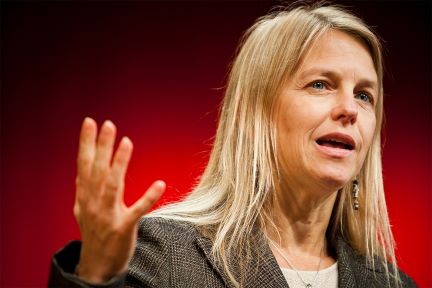RFS Briefings - January 5, 2021Dear Colleagues, As we begin a new year, we are all hoping for all the progress of science and the promise of new discoveries, worldwide. Laying the groundwork for this optimism, I encourage you to take advantage of the recordings of our 2020 end-of-year virtual meeting which took place on December 16 and 17: Labs, Leaders, Critical Connections. This is an incredibly rich collection of presentations which will introduce you to several amazing young scientists, some eminent leaders you may already know, and exciting new voices to help us see that Black Scientists Matter! And, before we completely leave 2020 behind, I urge you to visit the presentations from our 4-part series of Women in Science hosted with Genetic Engineering and Biotechnology News. You do not want to miss these:
Please continue to share important news and opportunities with us so that we may share it with you and others who are committed to supporting the careers of exceptional women in science. With regards in these trying times, Karla Shepard Rubinger NewsResearchers retract controversial female mentorship paper. The authors of a study that suggested female scientists who have female mentors have worse career outcomes have retracted the paper. Their conclusions, including a finding that “current diversity policies promoting female-female mentorships, as well-intended as they may be, could hinder the careers of women,” provoked social media outrage and criticism of their methods. Critics attacked both the study’s conclusions and the methods used to reach them, according to Science Magazine. Inside the C.I.A., She Became a Spy for Planet Earth. Read the amazing story of a behind-the-scenes scientist who was instrumental in harnessing the power of spy satellites to observe a wide range of environmental ills and change on the Earth’s surface. In an interview for The New York Times, Linda Zall talks about how she toiled anonymously within the intelligence agency to help scientists intensify their studies of a changing planet. Dava Newman named director of MIT Media Lab. “Leading the legendary Media Lab is a dream for me, and I can’t wait to help write the next chapter of this uniquely creative, impactful, compassionate community,” Newman says. Currently she is the Apollo Program Professor of Astronautics in MIT’s Department of Aeronautics and Astronautics, and a faculty member in the Harvard-MIT Program in Health Sciences and Technology.
New MIT Media Lab Director Dava Newman. Image: Dominick Reuter The engineer using science to build a better world after coronavirus. Dr. Pinar Keskinocak, the director of the Center for Health and Humanitarian Systems at Georgia Tech, is using her eclectic expertise and positions of leadership to fix crucial flaws in global operations, all while elevating the next generation of scientists. She is leading some of the top COVID-19 pandemic research and became president of The Institute for Operations Research and the Management Sciences (INFORMS) this year. Twist Bioscience plots its 'factory of the future' in Oregon, seeks to expand synthetic DNA client base. Twist, which manufactures synthetic DNA by writing it on a silicon chip platform, will build a 110,000-square-foot facility near Portland, Oregon, that will more than double its current production capacity by the time the facility is operational in 2022, according to Endpoints News. “We are expanding our customer base and ramping production of our products at an exceptional rate. The Factory of the Future allows us to support the increasing needs of our customers as they scale globally and plan for aggressive growth into synthetic biology and biopharma market segments we cannot serve today,” said Emily M. Leproust, Ph.D., CEO and co-founder of Twist Bioscience. Dr. Leproust was the winner of the 2020 Rosalind Franklin Award given by BIO, and she was a featured speaker at our recent RFS end-of-year virtual meeting: Labs, Leaders, Critical Connections. You can view the presentations here. How mRNA went from a scientific backwater to a pandemic crusher. For years, Katalin Karikó's work into mRNA therapeutics was overlooked by her peers. Now it's being used to develop two leading Covid-19 vaccines. She has been at the helm of BioNTech’s Covid-19 vaccine development. In 2013, according to the WIRED, she accepted an offer to become Senior Vice President at BioNTech after UPenn refused to reinstate her to the faculty position she had been demoted from in 1995. “They told me that they’d had a meeting and concluded that I was not of faculty quality,” she said. ”When I told them I was leaving, they laughed at me and said, ‘BioNTech doesn’t even have a website.’” Documentary shares stories of harassment against women in STEM. “Picture a Scientist” cites a report on sexual harassment in STEM released in 2018 by the National Academies of Sciences, Engineering and Medicine that estimates 50 percent of women faculty and staff in STEM have experienced sexual harassment. The documentary also features one of the RFS founders, Dr. Nancy Hopkins, who was central to the research at MIT to meticulously document the discrimination against female scientists in hiring, promotion, and even lab space!
Marianna Limas, Social Media Manager |

